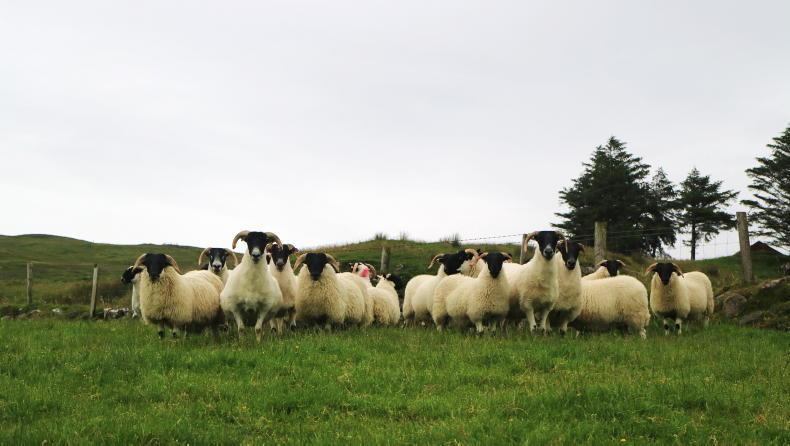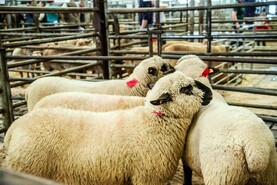The OviFlock project which aims to improve breeding in the hill sheep sector through the identification of superior performing genetics and the establishment of flockbooks for hill sheep societies is up and running.
Applications/expressions of interest can be submitted through the Sheep Ireland website, www.sheep.ie.
This Q&A with Sheep Ireland covers some of the common questions being raised by interested breeders.
Q. Can I get all my sheep genotyped through the project?
A. The aim is to genotype 8,000 breeding females in 2025, the first year of the project. Applications are on a first come, first served basis with flocks allocated a set number of genotypes which can be used annually. This will be influenced by factors such as flock size, number of breeding rams sold etc.
Q. How much does genotyping cost and do I need to pay Sheep Ireland or the society?
A. As detailed above genotyping (normally €24.60) is free for a set number of females annually for flocks accepted in to the project.
Q. Can I genotype rams through OviFlock?
A. The aim of the project at present is to collect data on females. Rams can continue to be genotyped through ram collection events or the ordering of genotype tags but not through the OviFlock project.
Q. I am not participating in the Sheep Improvement Scheme (SIS), can I apply to Oviflock.
A. Yes, OviFlock and the SIS are not linked. You can still produce SIS-eligible rams even if you are not participating in it.
Q. Do I need to contact my breed society before I make an application?
A. You do not need to contact your society but you must be a current active member of a recognised hill ram breeding group to participate. This will be verified with a group representative.
Q. What records do I need to collect?
A. The project will require you to identify the ewes that have bred ram lambs which you have selected for breeding. It is these sheep that are of most interest for genotyping and failing to do so will leave such animals impossible to identify. During flock visits OviFlock technicians will collect valuable data such as ewe ID, ewe age, ewe weight, bodycondition score, teeth/mouth quality scores, lameness scores, cases of mastitis, etc.
Q. What work will I be expected to do as part of the project?
A. The tasks that will need to be completed include identifying superior performing genetics. Technicians will record required information during flock visits but sheep will need to be gathered for the visit. Longer term it is envisaged that a bank of data will be recorded on the flock and that breeders will be able to capitalise on this through performance recording and enhancing flockbook data.
Q. When will flock visits take place?
A. Visits will be carried out over the next five years but the aim is to frontload as many of these as is possible in the early years of the project to generate better momentum and faster progress.
Flock visits for year one will commence as soon as is practical for interested flocks – ie tying in with flock gathers for routine management tasks where possible.
Q. What useful data will a breeder receive?
A. Genetic evaluations will be available on participating sheep and based on the traits of most significance in hill flocks.
Data collected to date shows a significant issue with inbreeding in some flocks and the project can be a game changer in ensuring inbreeding is avoided.
Purebred hill animals that have been genotyped to date have a significantly higher percentage of scrapie type three animals while scrapie is also emerging slightly higher than anticipated under type four and type five classification. There is significant variation between breed strains and the only way to actively select to protect against scrapie is via genotyping.






 This is a subscriber-only article
This is a subscriber-only article










SHARING OPTIONS: